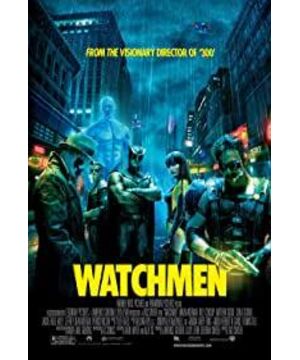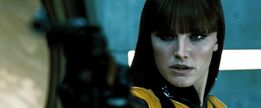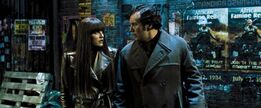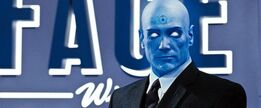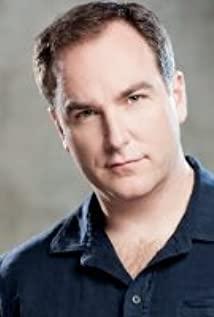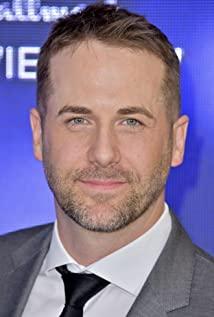In fact, it is not just superhero movies. The so-called Hollywood genre movies have developed to the later stage. The breakthrough attempt made by directors is to incorporate more and more non-genre elements into the original typified context. The concept of realism is too dangerous and too vague. I dare not use it casually. In fact, it may not necessarily be realism that invades the context of genre films. For example, the difference in "Who Framed Roger Rabbit" and "The Shark Gang" The qualitative elements are the elements of film noir and gangster films.
But instinctively, I think that the most disruptive and subversive of the heterogeneous elements incorporated into the genre is indeed realism. Of course, this needs to first explain how the concept of realism should be identified. Patrick Fouray’s view of this concept is instructive. He believes that realism has nothing to do with reality. Realism really emphasizes "realism" or "real effect". Realism is not a complete treatment of reality. Copy it, but let the recipient (reader, audience) "believe it is true."
Teacher Li Yiming has similar views on this issue. In his opinion, movies are not a restoration of reality, but a restoration of experience. After watching a movie, we feel good, not because it completely simulates a period of reality in our lives, but confirms some of our inner emotions. The stories in the movie are not necessarily true, but our experience tells us that it is the case. What's interesting is that Teacher Li Yiming calls this "Hollywood technologism", while Fulray calls it "realism" bluntly. If we refer to some references to realism made by the leftists in Yan'an and Shanghai, I believe we will agree with Fulray's point of view.
If we take the movie "Watchmen" as the object of analysis, we can clearly see the use of the concept of realism in narrative films and how realism subverts typified narratives.
Almost everyone who has watched this movie will admit that it is an anti-heroist superhero movie. I think the film’s director Zach Schneider must have seen Nolan’s "Dark Knight" and was inspired by it, because the ending of the film that does not match the original comic book is almost a replica of The Dark Knight. But I think the director goes further than "The Dark Knight" because the perpetrators are actually superheroes. An innocent superhero finally committed the crime for another superhero who committed a crime. In order to realize the plan of concealing the crime, this innocent superhero finally filled his hands with the blood of crime, and he killed a person who did not want to keep a secret.
Therefore, in "Watchmen", the essential madness of superheroes is undoubtedly exposed, and there is no need to use symbols such as clowns and double-faced people like the "Dark Knight" to imply (Batman is essentially a clown, but also double-sided People, the three of them are actually trinity). There is an animated story in "Watchmen" that has nothing to do with narrative on the surface, but actually exists as a metaphorical text (this is a story in a comic book that a child in the movie has been reading). In this story, a captain was killed by a black cargo ship while sailing home. All his crew members were killed, and he was the only one who survived. The captain knew that the black cargo ship's sailing route would pass through the town he lived in. He was worried that his town would also be attacked by the black cargo ship, so he returned to his town after all the hardships. Under his nervous gaze, the town had been invaded by the crime of the black cargo ship, so he unscrupulously attacked and killed the bad guys he had imagined, until he discovered that the wife he had always wanted to rescue from the town was actually killed by him. It turned out that the town was not attacked by black cargo ships at all.
The core metaphor of this story is that the hero will imagine a context (such as a criminal city, corrupt justice, a small town occupied by black cargo ships) under which his originally illegal lynching behavior becomes legal .
The movie is actually the best mechanism to create and support this kind of conjecture. Only in the movie can we enjoy the protagonist on the screen with a pleasant mood and kill the "bad guys" like cutting melons and vegetables. Without having to bear any moral guilt. Because in the typified context deliberately created by the movie, those bad guys have become pure objects, a tool for evil, and their large numbers and easy elimination have made them a kind of little monster in video games. a feeling of. They were eliminated just to better push forward the narrative. The "Indiana Jones" series is a typical representative of this type of context.
If you pack a little bit more, the defense for the lynching of superheroes is that they will not kill. Whether it is Superman, Spiderman or Batman, they all abide by this bottom line, catch the bad guys and send them to the police to ensure the legality of their actions.
The brilliance of "The Dark Knight" is that it cleverly uses the first context to drive the second context insane. The clown is undoubtedly an incarnation of pure evil. He does evil for no reason, just to disrupt the order (this order is both legal and moral, so that even the gangsters who thieves can not tolerate him). There is no doubt that if the role of the clown appears in a story such as "First Blood" or "Indiana Jones", it must be the kind of villain who has no connotation and is just a madman, and the protagonist's solution is simple It's enough to wipe him out. But because he is in the context of the "Dark Knight" story and a protagonist who adheres to the bottom line of superheroes not being murderable, the subversive genre of his madness has been highlighted. The existence of the Joker itself is a questioning of the principle firmly adhered to in the superhero movies, and even in turn makes us suspect that the reason Batman must abide by this principle is actually because he is afraid to reveal that he is essentially the same as the Joker. fact. The principles that Batman adheres to, like his uniform and mask, protect him from being recognized by the social order and not being treated as a monster.
On the contrary, "Watchmen" does not question another aspect by emphasizing a certain aspect of the typified narrative (such as the villain's extreme evil), but questions the context of the entire typified narrative. This kind of questioning is the result of a wonderful blend of history, reality, and the story of a superhero movie.
In the opening captions of "Watchmen", the director combined the history of the superheroes (that is, the Watchmen League) with the entire history of the United States through editing, and the superheroes themselves participated in the construction of history (one of the watchmen) The laughter assassinated Kennedy, and the laughter and Dr. Manhattan helped the United States win the Vietnam War). But it is in this process that the existence of superheroes becomes more and more comical. We can't imagine how embarrassing and untimely a superhero who is separated from Hollywood's typified narrative and placed in the context of reality and history. So at the beginning of the story, the alliance of superheroes has disappeared, replaced by Nixon’s "Kean Act", superheroes must either submit to the government (completely integrated into order), or must be disbanded, otherwise it is illegal.
In the story, the director also used Rorschach, one of the watchmen, to tell why there are so few superheroes with normal body and mind? The irony is that Rorschach, who said this, is the most extreme anti-socialist and mentally abnormal. In fact, the psychological abnormality of superheroes is precisely the necessary condition for superheroes to exist in reality, just like the captain in the animated story, precisely because they imagined the city as dark, corrupt, chaotic, and full of eschatological crises. , They can obtain rationality for their lynching behavior.
Of course, some people can argue that the background of the Cold War between the United States and the Soviet Union in this movie has found a rationale for the cynical behavior of superheroes, and even defended the crazy behavior of one of the last superheroes, Witte (Witte is precisely all the watchmen. The smartest one among them). But as the opening of the film says, the fact that the escalation of the conflict between the United States and the Soviet Union is largely due to the existence of Dr. Manhattan, one of the watchmen.
So in a realistic and historical context, we find that on the one hand, superheroes complain about the degeneration of society and their helplessness in having to act for the sky (instead of the law), but on the other hand, we find that social problems are either superheroes. Either the paranoia itself is caused by a superhero. They are like the captain in that cartoon. They are the executioners who destroy the peace of the town, and they think they are saving the town from the clutches of the black cargo ship.
At the end of the story, we can truly understand that the seemingly craziest laughter is the wisest. He said that the watchman is actually a joke. However, the people in the joke can't see through the joke, and they still maintain the world they imagined with serious and hard work.
View more about Watchmen reviews


